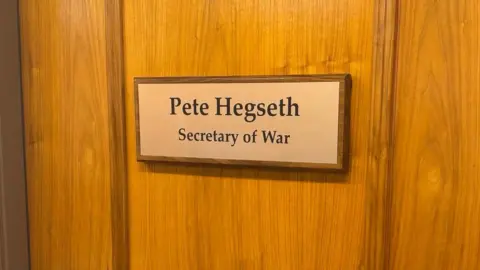The article text:
Taiwan's capital Taipei activated a series of emergency responses on Thursday as it conducted one of its largest civil defense drills against potential Chinese aggression. The city was enveloped in the sounds of air raid sirens, triggering residents across the metropolitan area to seek shelter, leading to extensive traffic disruptions. This exercise coincided with Taiwan's most significant military training operation to date, the annual Han Kuang exercises, reflecting the island's commitment to bolster its defenses.
China, which claims Taiwan as its territory, has maintained a threatening posture, stating that it will not shy away from using force for reunification. Tensions have heightened since the election of Taiwan's president, William Lai, whom China labels a "separatist." The recent drill received the attention of numerous government officials, including Lai himself and Raymond Greene, head of the American Institute of Taiwan. In his closing remarks, Lai emphasized Taiwan's collective resilience and the necessity of strengthening societal defense, underscoring their intent to prepare to deter conflict rather than provoke it. "By preparing for war, we can avoid war and promote peace," he asserted.
Beijing denounced the exercises as mere posturing by the Democratic Progressive Party meant to advocate for independence. This year's Urban Resilience exercise uniquely merges civil defense and military drills unlike previous iterations of Han Kuang, aiming to increase readiness in the face of threats. A standout feature includes mandatory indoor sheltering protocols for residents during air raid simulations, with regard to potential fines for noncompliance where shops and traffic were halted across numerous cities.
In Taipei, emergency services and volunteers executed a realistic mock scenario involving mass casualties resulting from missile attacks, enhancing preparedness among emergency responders. The Urban Resilience exercise is part of a broader series of drills as Taiwan seeks to raise its citizens’ awareness of defense measures.
Despite international warnings regarding the immediacy of a potential Chinese invasion by 2027, many Taiwanese citizens remain skeptical of an imminent attack. A recent survey indicated that over 60% of Taiwanese don’t foresee Chinese military action within the next five years. One young professional stated, "The chance of an invasion seems low. If they wanted to invade, it would have happened already," while others noted the military imbalance between China and Taiwan may undermine their defense efforts.
In response to these concerns, Taiwan has escalated its military preparations, with over 22,000 troops participating in comprehensive training that includes terrestrial, aerial, and naval strategies. Newly acquired military systems from the U.S. were also integrated into the drill, which encompassed tactics to counter misinformation and psychological warfare from China, as well as urban combat simulations. Additionally, on Thursday, Taiwanese forces practiced maintenance for Black Hawk and Apache helicopters, demonstrating a commitment to enhancing operational readiness amid growing external pressures.
Taiwan's capital Taipei activated a series of emergency responses on Thursday as it conducted one of its largest civil defense drills against potential Chinese aggression. The city was enveloped in the sounds of air raid sirens, triggering residents across the metropolitan area to seek shelter, leading to extensive traffic disruptions. This exercise coincided with Taiwan's most significant military training operation to date, the annual Han Kuang exercises, reflecting the island's commitment to bolster its defenses.
China, which claims Taiwan as its territory, has maintained a threatening posture, stating that it will not shy away from using force for reunification. Tensions have heightened since the election of Taiwan's president, William Lai, whom China labels a "separatist." The recent drill received the attention of numerous government officials, including Lai himself and Raymond Greene, head of the American Institute of Taiwan. In his closing remarks, Lai emphasized Taiwan's collective resilience and the necessity of strengthening societal defense, underscoring their intent to prepare to deter conflict rather than provoke it. "By preparing for war, we can avoid war and promote peace," he asserted.
Beijing denounced the exercises as mere posturing by the Democratic Progressive Party meant to advocate for independence. This year's Urban Resilience exercise uniquely merges civil defense and military drills unlike previous iterations of Han Kuang, aiming to increase readiness in the face of threats. A standout feature includes mandatory indoor sheltering protocols for residents during air raid simulations, with regard to potential fines for noncompliance where shops and traffic were halted across numerous cities.
In Taipei, emergency services and volunteers executed a realistic mock scenario involving mass casualties resulting from missile attacks, enhancing preparedness among emergency responders. The Urban Resilience exercise is part of a broader series of drills as Taiwan seeks to raise its citizens’ awareness of defense measures.
Despite international warnings regarding the immediacy of a potential Chinese invasion by 2027, many Taiwanese citizens remain skeptical of an imminent attack. A recent survey indicated that over 60% of Taiwanese don’t foresee Chinese military action within the next five years. One young professional stated, "The chance of an invasion seems low. If they wanted to invade, it would have happened already," while others noted the military imbalance between China and Taiwan may undermine their defense efforts.
In response to these concerns, Taiwan has escalated its military preparations, with over 22,000 troops participating in comprehensive training that includes terrestrial, aerial, and naval strategies. Newly acquired military systems from the U.S. were also integrated into the drill, which encompassed tactics to counter misinformation and psychological warfare from China, as well as urban combat simulations. Additionally, on Thursday, Taiwanese forces practiced maintenance for Black Hawk and Apache helicopters, demonstrating a commitment to enhancing operational readiness amid growing external pressures.






















